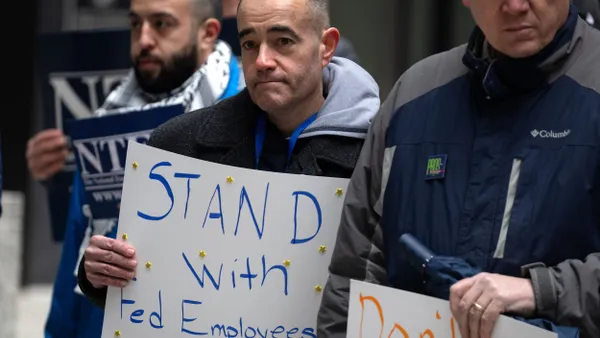Dive Brief:
- A jury last week awarded $250,000 to a former Sam’s Club employee who alleged the company fired her in retaliation for complaining about sexual harassment (Harris v. Sam's East Inc, No. 4:20-cv-176 (M.D. Ga. Oct. 6, 2022)).
- The sales associate made several employment discrimination claims in a lawsuit. While a federal district court dismissed some, it said a jury should decide whether she was subjected to sexual harassment and fired for complaining about it. The jury returned a verdict in the employee’s favor, finding that she was subjected to sexual harassment, complained to someone she reasonably believed had authority to investigate her complaint and was fired in retaliation for complaining. It awarded her both back pay and other damages.
- A spokesperson for Sam’s Club told HR Dive the employee was terminated for legitimate reasons under its progressive discipline policy, and that the company is reviewing the verdict and weighing its options, which may include filing post-trial motions.
Dive Insight:
The Harris verdict illustrates the elevated risk that can exist when employee discipline is undertaken around the same time the employee engages in protected activity.
In clearing the employee’s claims for trial, the court explained that a reasonable jury could conclude that the company’s explanation for her termination didn’t hold up: Sam’s Club said it fired the employee because of a different sexual harassment complaint lodged against her, but the plaintiff said she was never told about the complaint and said others were not subject to the same level of discipline. Therefore, the court said, a jury should decide whether her termination was retaliatory.
When employees engage in protected activity, employers can — and for equity reasons, perhaps should — dole out discipline as they otherwise would, some management-side attorneys previously told HR Dive.
But HR should be involved, they recommended, along with legal counsel. HR can ensure that discipline policies are followed and that problems have been properly documented, for example.
But others urged additional caution, in light of the fact that temporal proximity alone can be evidence of discrimination. There’s no bright line, however, for that timing. When an employer fired an employee eight months after he filed an EEOC charge, a federal appeals court said the timing — especially because it was coupled with well-documented performance problems — didn’t indicate bias. Spans of just a few weeks, days or hours, however, have been deemed evidence of discrimination.














